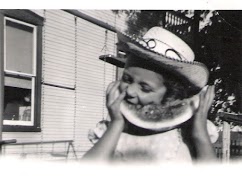By Byron Rempel-Burkholder
In my weekly phone conversations with my parents, it is almost routine for the conversation to include a little chuckle on the subject of pride. Whether we’re talking about our children getting on the dean’s honour roll, or my excitement about some high-profile endorsements for our upcoming new comic book, Radical Jesus—Dad will inevitably pose that old question that dominated his own upbringing: “Is this making you proud?” He asks it with a twinkle in his eye, because he understands the complicated relationship with pride that Mennonite Christians have had historically.
Mennonites value humility as a pillar of discipleship. You don’t put yourself forward; you serve others and deny yourself. You don’t brag about your achievements, and you even withhold lavish praise from others lest you feed a culture of pride. In some quarters, you don’t wear stylish clothes or jewelry, because that draws attention to yourself.
Dad and I both recognize that humility is a mixed bag. In excess, it can sabotage the self-esteem we all need for our well-being. Restraining our joy over an accomplishment—ours or someone else’s—can undermine gratitude. On the other end of the spectrum, everyone knows how a swelled head can mess up our spirituality and our social life. In the middle somewhere is a humble kind of pride that allows us to celebrate God-given gifts and achievements.
And so it is in our publishing work. As our books go into production, we send the manuscripts to well-known people to endorse. We excerpt the pithiest compliments from their statements and we emblazon them on the back covers, on our website, and in social media. We ask our authors to do the same—to talk and blog about their books, to sign books at launch events, and to gush about how good they are.

Call it godly bragging if you like—godly because we recognize that our books, curriculum, and periodicals, are ultimately gifts of God to the world, and they deserve to be talked about, praised, and even urged upon the world.
There was a time—just a couple of decades ago— when we didn’t need to do this as a church publisher. Loyal congregations and individuals would buy our products simply because we were their publisher and they trusted us to put out the resources they needed. The annual catalogue and a few simple display ads in church papers were about all we needed to get people buy the product. That was okay, and it fit nicely with the self-effacement we called humility.
Today, to survive, we have to be assertive in getting the word out to the world, including to our own churches. We highlight the good things about what we are publishing. In our promotions we become evangelists of a vision, a message, a gift: a biblical orientation of discipleship and service. We can actually be humble in our “bragging” because we’re carried along by something bigger than our own egos. I hope that’s what we’re doing.
Shirley Showalter’s soon-to-be released memoir, Blush, shows some of the healthy tension around humility. In her traditional “plain” Mennonite girlhood, Showalter had a desire to be “big” in a world beyond her small, culturally confined community. While she valued Mennonite teachings on humility, her sense of vocation in the glittering world beyond Lititz, Pennsylvania, drew her into a big world of service. Ultimately, it wasn’t self-inflation; it was a call. Shirley went on to become a professor, and eventually president of Goshen (Indiana) College and then a foundation executive with The Fetzer Institute in Michigan.
Blush is to be released on September 30, but the fanfare has been running for some time already. Months ago, Shirley hosted a party in her home to unveil the cover of the book. She keeps updating her vast Facebook network on the progress of the release, and announces launch events on her blog. Like our marketing department, she is getting the word out.
 There is something bigger happening here than mere publicity, though. Shirley has started an electronic network of folks who are also wanting to write their own memoirs, sharing what she has learned and encouraging others. She’ll be teaching a college class on memoir writing this fall. Like a number of our authors, she is donating royalties to a charity.
There is something bigger happening here than mere publicity, though. Shirley has started an electronic network of folks who are also wanting to write their own memoirs, sharing what she has learned and encouraging others. She’ll be teaching a college class on memoir writing this fall. Like a number of our authors, she is donating royalties to a charity.
Shirley’s story is about her, but it’s also about community, and a way of life that celebrates and shares the stuff of our lives. That is what happens when our desire to be “big” is bound up with a larger vision.

I think that is also what the Apostle Paul was getting at in his own frequent reflections on “boasting.” He had much to brag about in his life—including his pedigree as a Pharisee, supernatural revelations, and a dramatic conversion. In 2 Corinthians 11 he does seem to wear his experiences on his sleeve. But he puts it all in perspective by saying: “Let the one who boasts, boast in the Lord” (2 Corinthians 10:17).
I hope that’s what’s going on when we promote our products. We take these gifts of stories, these blessings of a vigorous Anabaptist theology, and we broadcast them to the world—unabashedly, with confidence. And yet we do so humbly, knowing that these gifts are from God, meant to be shared.
Byron Rempel-Burkholder is a managing book editor for MennoMedia.



 Shine Curriculum introduces Shine Everywhere
Shine Curriculum introduces Shine Everywhere
Recent Comments